‘1776’ Review: Adams & Eves
Hats off to the sparkling ensemble of a '1776' revival that pinpoints the foresight and blind spots of the Founding Fathers.
By André Hereford on July 12, 2023 @here4andre

Oh, what a momentous time in this nation’s history to contemplate what on earth the founding fathers were thinking when they envisioned these United States of America.
Last year’s radical Broadway revival of Tony-winner 1776 (★★★☆☆), directed by Jeffrey L. Morgan and Diane Paulus, also thrust front-and-center the question of whom the founders were thinking, by presenting an entire cast of performers who identify as female, trans, or nonbinary, many of them people of color, portraying the white men who convened to create a country.
Much of the Broadway cast continues in the national touring production, currently at the Kennedy Center, though they’re almost all trying on different roles.
For anyone missing the point that this won’t be your mama’s Adams, Franklin, Jefferson, or Hancock, the cast, en masse, make a show at the start of stepping into the coats, stockings, and stiff, buckled court shoes of the “framers of independence.”
That framework, we know, didn’t include independence for every person in America, and it would be hard to forget that even with traditional casting — perhaps even moreso in this day and age.

But Morgan and Paulus’ primary update poignantly serves to remind that the sage Revolutionaries depicted in Sherman Edwards and Peter Stone’s 1969 musical-comedy held a very narrow view of what constituted an American, and, nearly 250 years later, far less wise men still think it’s for them to debate who is and isn’t a person worthy of nationhood.
So it’s with a powerful sense of dignity that the members of this diverse ensemble don those coats and shoes, and essay the nation’s origin story, built around John Adams (Gisela Adisa) trying to convince the delegates of the Second Continental Congress to vote on a resolution for independence.
From the get-go, Adams’ fellow delegates are screaming, “John, sit down!” He’s obnoxious and disliked, he’s told on several occasions, though those aren’t exactly the leading traits of Adisa’s performance in the part.
Her Adams is passionate — about building a nation, and loving his wife, Abigail (portrayed opening night by Brooke Simpson, standing in for Tieisha Thomas) — and just energetic enough to keep the narrative ball moving. The proceedings perk up more when momentum is handed to star players like Shawna Hamic, reviving her bravura Broadway turn as delegate Richard Henry Lee of Virginia.
Hamic has a grand old time with Lee’s hilariously self-referencing “The Lees of Old Virginia,” accompanied by Liz Mikel’s dotty and delightful Ben Franklin, ever reliable for a laugh and for Franklin’s authoritative sway over members of this august body.
Franklin and Adams don’t hold sway over the all-but-hissing villains of the piece: Joanna Glushak’s prim, pantherish royalist, John Dickinson of Pennsylvania, and Kassandra Haddock’s icy, smooth-talking South Carolina slaveholder, Edward Rutledge. The syrup drips a little too thickly from Rutledge’s tongue, while Glushak sharpens Dickinson’s delivery to a fine, ruthless edge.
In one of the few scenes where debate and rancor are quieted to consider the losses a young nation has already faced, Candice Marie Woods (standing in on opening night for Simpson as the Courier) puts over a beautiful “Momma, Look Sharp,” a highlight of Edwards’ pithy, tuneful score, and another poignant reminder that all kinds of people have died fighting for the United States of America.
Again, who or what is included in that concept remains an open question to many modern-day Dickinsons, politicians, and Justices of the Supreme Court. The directors address that question in contemporary terms with a video montage projected onto Scott Pask’s humdrum set during “The Egg,” the song in which Franklin leads the company to cheer the “chirp, chirp, chirp” of a newly hatched nation.
Clipping through a brief, uplifting history of progress made in the United States doesn’t capture the struggle to “birth a nation” with nearly the succinct impact of the show’s final gesture, when the cast sheds their coats and characters and proudly faces the audience again as their true selves.
1776 runs through July 16 in the Kennedy Center’s Eisenhower Theater. Tickets are $45 to $155. Call 202-467-4600, or visit www.kennedy-center.org.
Ryan Bernier’s Golden (Girls) Ticket
Ryan Bernier has been playing Dorothy in "Golden Girls: The Laughs Continue" for two years and shows no signs of stopping.
By Randy Shulman on March 16, 2025 @RandyShulman
"This is the first time I've had a role for this long," gasps Ryan Bernier. "We just hit our 300th performance of the show in Detroit in January!"
The show is Golden Girls: The Laughs Continue, a warmly loving, gut-bustingly funny stage parody of the hit NBC series that ran for seven seasons from 1985 to 1992, and lives on in perpetuity in reruns. Bernier portrays Dorothy, made iconic by the indomitable and legendary late Bea Arthur, for whom the 6'3" actor is also a dead ringer.
To prepare for the role, which Bernier plays in full drag, he "consumed everything that Bea Arthur had ever done -- and we're talking from Maude to her brief gig on the Star Wars Holiday Special to her brief voiceover role in Futurama. She was a performer who really found a way to bring all of the tools in her toolbox to every project that she picked up.
Synetic Works its Magic on Charlie Chaplin in ‘The Immigrant’
Synetic's magnificently layered riff on Charlie Chaplin and his most iconic character hits close to home.
By Kate Wingfield on March 27, 2025
Like life imitating art and art imitating life, Synetic Theater currently has rather a lot in common with the subject of their production of The Immigrant, a riff on Charlie Chaplin and his tragic-comic character known as the Little Fellow.
Not only are Synetic's founders themselves immigrants, but the company is now as homeless as Chaplin's character. Add the fact that the headlines don't go a day without covering the plight of immigrants of all stripes, and it's all happening here under the bowler hat.
Of course, having no space to call home is no laughing matter -- especially since Synetic must move between area theaters, even mid-run, as in the case of The Immigrant. This must be taking its toll.
Classical & Choral Music: Spring Arts Preview 2025
The Spring-into-Summer offerings this year in the classical realm are as rich, diverse, and extensive as ever.
By Doug Rule on March 30, 2025 @ruleonwriting
The Spring-into-Summer offerings this year in the classical realm are as rich, diverse, and extensive as ever. There's even a WorldPride-affiliated event here and there, including a two-day festival that will close out May in surely the gayest way ever up at Strathmore. But don't think for a second that the Gay Men's Chorus of Washington is gonna take that lying down. In fact, for WorldPride, the organization's many choristers are planning to do a whole lot of popping up, all over the city, for two full weeks. And wouldn't you know it, they're even calling in reinforcements from all over the country.
Support Metro Weekly’s Journalism
These are challenging times for news organizations. And yet it’s crucial we stay active and provide vital resources and information to both our local readers and the world. So won’t you please take a moment and consider supporting Metro Weekly with a membership? For as little as $5 a month, you can help ensure Metro Weekly magazine and MetroWeekly.com remain free, viable resources as we provide the best, most diverse, culturally-resonant LGBTQ coverage in both the D.C. region and around the world. Memberships come with exclusive perks and discounts, your own personal digital delivery of each week’s magazine (and an archive), access to our Member's Lounge when it launches this fall, and exclusive members-only items like Metro Weekly Membership Mugs and Tote Bags! Check out all our membership levels here and please join us today!
The Magazine
-
Most Popular
 Signature Honors Mandy Patinkin in Emotional Celebration
Signature Honors Mandy Patinkin in Emotional Celebration  Gay Army Reserve Officer in Uniform Sex Video Scandal
Gay Army Reserve Officer in Uniform Sex Video Scandal  A Potent (and Pricey) 'Good Night, And Good Luck'
A Potent (and Pricey) 'Good Night, And Good Luck'  Sarah Snook is Astonishing in Broadway's 'Dorian Gray'
Sarah Snook is Astonishing in Broadway's 'Dorian Gray'  MISTR's Free DoxyPEP Leads to Huge Drop in STI Rates
MISTR's Free DoxyPEP Leads to Huge Drop in STI Rates  Jared Polis Signs Law Repealing Colorado's Gay Marriage Ban
Jared Polis Signs Law Repealing Colorado's Gay Marriage Ban  Becca Balint: The Pride of Vermont
Becca Balint: The Pride of Vermont  Police Barge into Walmart Restroom to Confront Butch Lesbian
Police Barge into Walmart Restroom to Confront Butch Lesbian  'Gray Pride' Protests Hungary's Ban on Gay Pride Marches
'Gray Pride' Protests Hungary's Ban on Gay Pride Marches  Hugh Bonneville Delivers a Show-Stopping Vanya
Hugh Bonneville Delivers a Show-Stopping Vanya
 Becca Balint: The Pride of Vermont
Becca Balint: The Pride of Vermont  Signature Honors Mandy Patinkin in Emotional Celebration
Signature Honors Mandy Patinkin in Emotional Celebration  MISTR's Free DoxyPEP Leads to Huge Drop in STI Rates
MISTR's Free DoxyPEP Leads to Huge Drop in STI Rates  A Potent (and Pricey) 'Good Night, And Good Luck'
A Potent (and Pricey) 'Good Night, And Good Luck'  Sarah Snook is Astonishing in Broadway's 'Dorian Gray'
Sarah Snook is Astonishing in Broadway's 'Dorian Gray'  'Gray Pride' Protests Hungary's Ban on Gay Pride Marches
'Gray Pride' Protests Hungary's Ban on Gay Pride Marches  Jared Polis Signs Law Repealing Colorado's Gay Marriage Ban
Jared Polis Signs Law Repealing Colorado's Gay Marriage Ban  White House Ignores Reporters with Pronouns in Email Signatures
White House Ignores Reporters with Pronouns in Email Signatures  White House Demands NIH Study Transgender Transition "Regret"
White House Demands NIH Study Transgender Transition "Regret"  Air Force Reverses Ban on Pronouns in Email Signatures
Air Force Reverses Ban on Pronouns in Email Signatures
Scene
Metro Weekly
Washington's LGBTQ Magazine
P.O. Box 11559
Washington, DC 20008 (202) 638-6830
About Us pageFollow Us:
· Facebook
· Twitter
· Flipboard
· YouTube
· Instagram
· RSS News | RSS SceneArchives
Copyright ©2024 Jansi LLC.






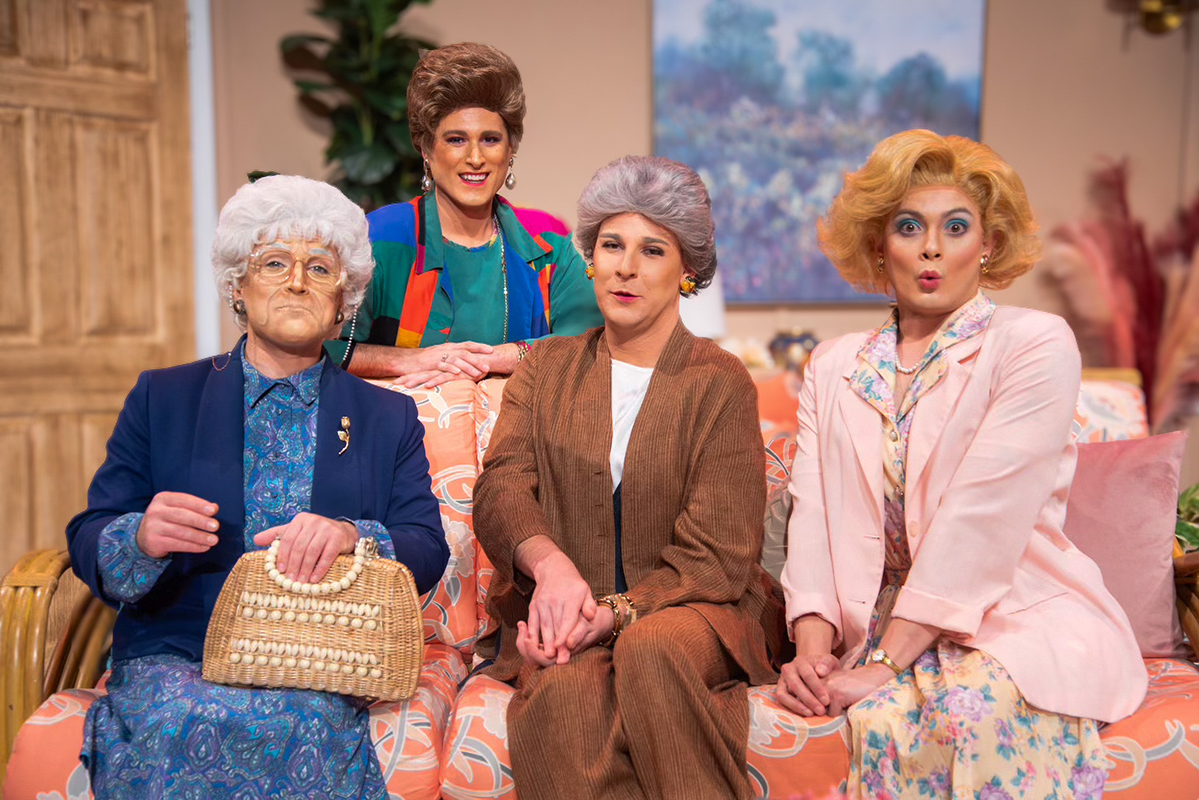
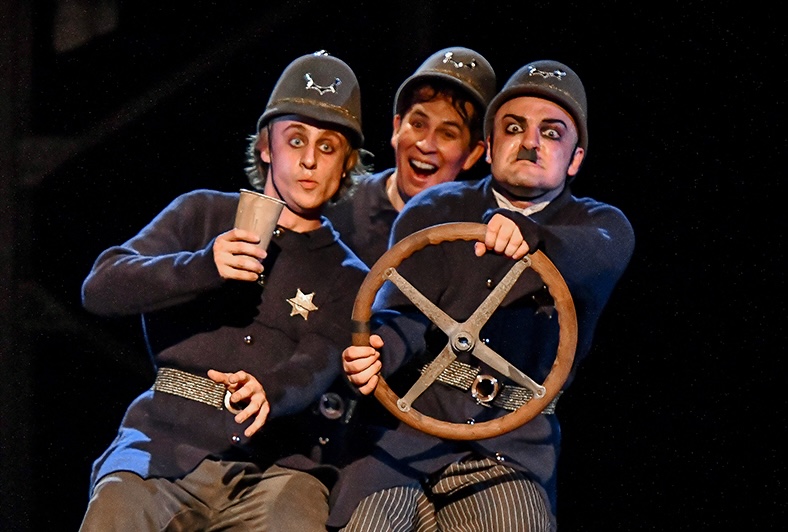
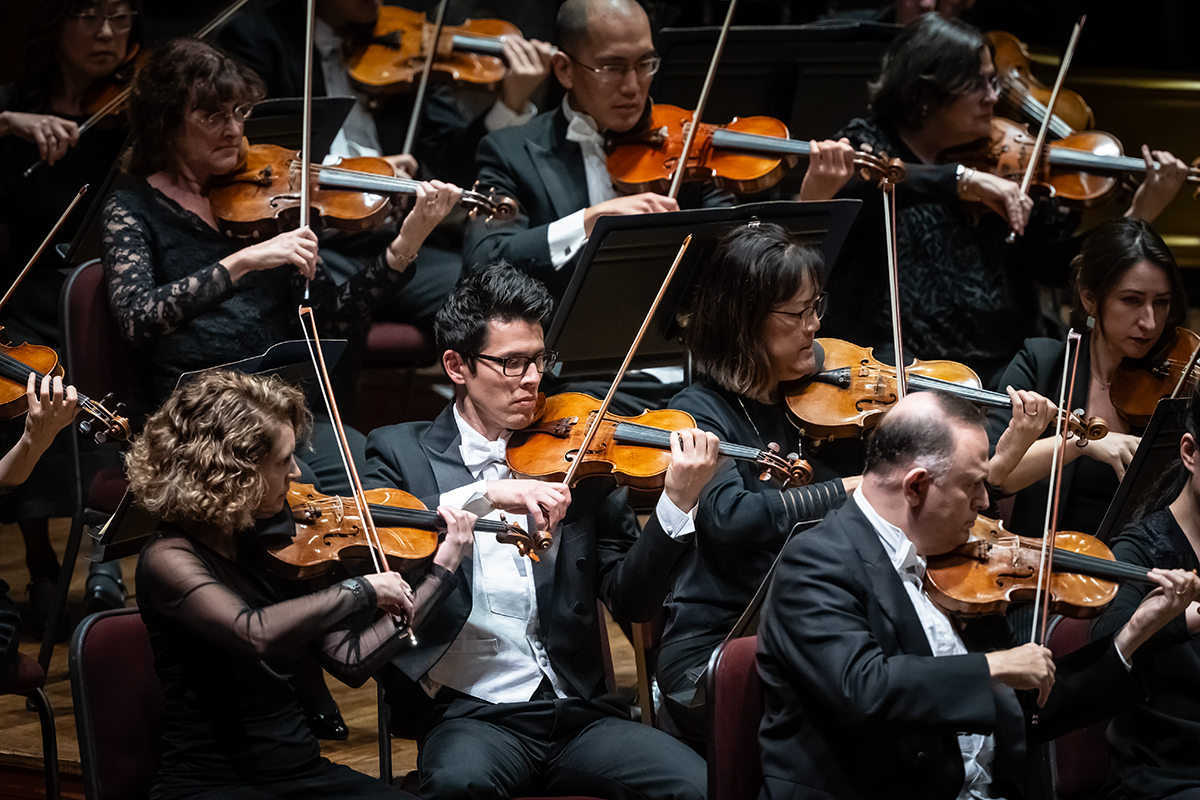
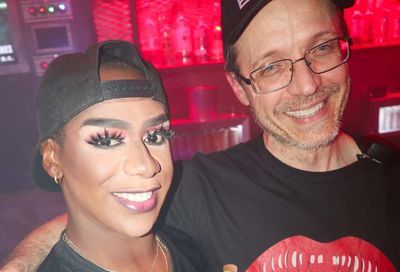
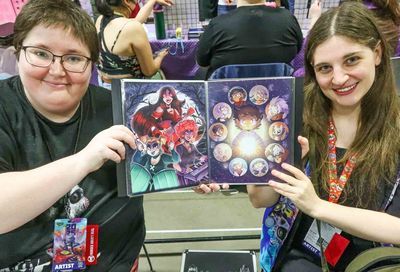
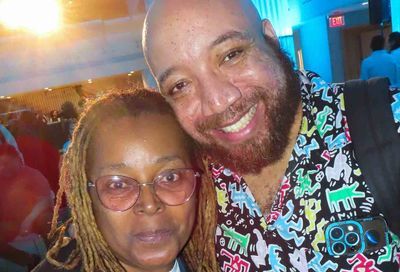
You must be logged in to post a comment.